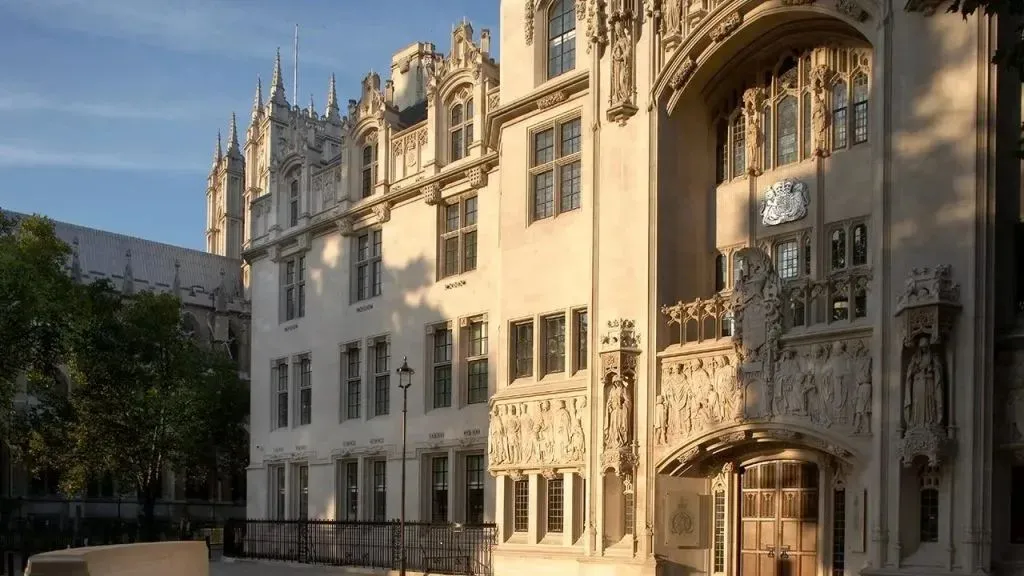
The law firm representing the borrower in yesterday’s appeal ruling against One Savings Bank has spoken out about the impact of the Supreme Court’s decision for victims of economic abuse.
Solicitors Howard Kennedy, which represented Catherine Waller-Edwards in her successful appeal against the lender, says it is “landmark development” in protecting individuals who are vulnerable to “undue influence” in financial decisions.
The crux of the case was whether or not OSB should have followed a specific procedure – known as the Etridge protocol – to ensure Waller-Edwards understood the full implications of remortgaging the property she owned with her then partner Nicholas Bishop.
The protocol requires that lenders confirm a borrower has received independent legal advice if they are taking out a mortgage with another person that is for that person’s benefit.
Waller-Edwards’ case was especially complex because the money raised from the remortgage was used for several different purposes and was therefore a “hybrid” loan.
Part of the mortgage was to be used to repay Bishop’s sole debts, but part was meant to be for the couple’s joint benefit.
Background to the case
The situation leading up to the remortgage was also complicated.
Waller-Edwards owned a £600,000 home with no mortgage and had £150,000 in savings as well as a £7,000-a-year pension before she entered into a relationship with Bishop in 2011.
But she agreed to exchange the home and her savings for a property that Bishop was building, which already had a charge against it from another lender.
The couple later took out a £384,000 remortgage from One Savings Bank against the new property, with Bishop stating this was to repay the first mortgage, clear £39,000 of debt and invest in another buy-to-let property together.
In reality and without OSB’s knowledge, Bishop also used £142,000 from the mortgage to pay a divorce settlement to his ex-wife.
After the remortgage was granted by OSB, the relationship between Bishop and Waller-Edwards broke down, he moved out and the mortgage on the home went into arrears.
OSB launched possession proceedings in 2021, which Waller-Edwards appealed, but this was overturned and ultimately the case ended up at the Supreme Court for yesterday’s ruling.
The key issues at stake in this case were the fact that the remortgage was a “hybrid” transaction, because the money was used for different purposes rather than all of the sum being used for the benefit of both parties.
Although the bank did not know about the sum paid to Bishop’s ex-wife, which was for his benefit and not that of Waller-Edwards, the lender was aware of the £39,000 used to clear his debts.
Because of this, Waller-Edwards’ legal team was able to successfully argue that she was effectively acting as a kind of guarantor on that element, making it what’s known as a “surety” transaction rather than a joint mortgage.
The other aspect of the legal argument was whether the £39,000 element was a large enough sum to trigger the lender to need to follow the protocol and check the borrower was not acting under “undue influence”.
Yesterday’s ruling clarifies that lenders should be following the protocol in any case where one borrower is assuming liability for the other borrower’s debts without any clear advantage to themselves.
A landmark ruling for victims of economic abuse
Howard Kennedy partner Joel Leigh, the lead solicitor for Waller-Edwards, says: “The Supreme Court’s decision is a landmark development in the law of undue influence, the most significant since Etridge.
“It is remarkable that hybrid transactions have gone unrecognised for so long, and that a workable test has only now been confirmed.
“While some lenders may have already adopted a cautious approach, the absence of formal recognition likely left many vulnerable individuals without recourse.
“These were people who, dependent on a partner who abused their trust, were drawn into transactions that left them financially exposed.
“Many will have lost homes, creditworthiness, and stability and lacked the means or confidence to challenge it.
“Even those prepared to challenge such contracts would have faced an uphill battle, because without any legal recognition of hybrid transactions, claims were doomed to fail unless (as in Catherine’s case) taken to the highest court in the land.
“The Supreme Court’s judgment delivers long-overdue clarity and a vital safeguard: from now on, in any non-commercial hybrid transaction, a more than de minimis [trivial] surety element is enough to put a lender on inquiry and require compliance with the Etridge protocol.
“Catherine’s fight has not only secured justice for her but has reshaped the legal landscape, extending meaningful protection to both men and women at risk of economic abuse within their personal relationships.”
The lender’s response
OSB says: “We note the judgement of the Supreme Court.
“We are naturally disappointed by the decision, which was based on a very particular set of facts.
“This is a complex case arising from a loan in 2013 and we are assessing the implications of the ruling, although we note that cases involving undue influence are rare.
“At the same time, we will review our current procedures.”



